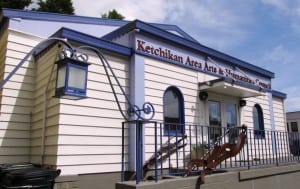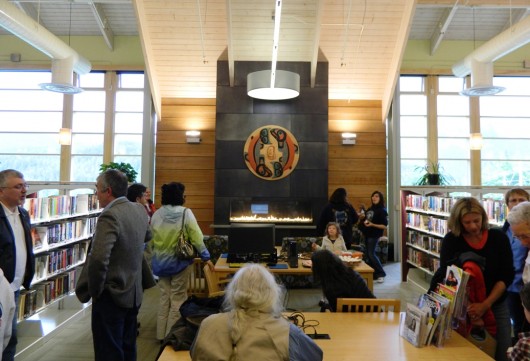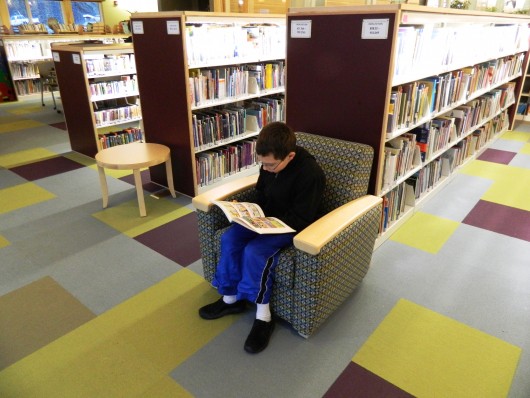The library will be open on Sundays, and community agency grants are safe for another year. Those were two 2015 budget items decided Monday by the Ketchikan City Council during a special budget meeting.
Originally, Sunday hours at the Ketchikan Public Library were going to cost an extra $95,000, which is the salary and benefits for the equivalent of 1.65 additional staff members. But the Ketchikan City Council balked at that increase, and asked management to take another look at the numbers.
City officials came back with a pared-down plan that still will offer a Sunday opening, but for much less. The staff increase now is.375, with an equivalent salary and benefit cost of just $16,000 over the current year.
“I appreciate the library staff going through, re-looking at the budget, and coming up with these new estimates and scheduling changes,” said Council Member Matt Olsen. “I understand it will have an impact on them, and some of them will be changing their schedules accordingly. I greatly appreciate it, and I know the community does, too.”
The motion to approve the revised plan for Sunday hours at the library passed 6-1, with Council Member Dick Coose voting no.
Community grants are an annual target for budget cuts. They are grants from the city and

The Ketchikan Area Arts and Humanities Council is one local nonprofit that receives community agency grants from the City of Ketchikan.
Ketchikan Public Utilities for local nonprofit agencies. Many of the recipients use the local grants as proof of community support when applying for state or private grant funding.
A few years ago, city officials tried to come up with a funding formula for grants, and tied the amount that would be provided for nonprofits to the city’s sales tax collection. The city raised sales taxes this year, so according to the formula, the grants should go up, too.
Coose objected to that. He said the projected sales tax collection is too optimistic.
“Business is not good,” he said. “You talk to businesses, and it’s not good. I still think we should be capping it at last year’s number.”
This year’s payout for community grants was $358,000. The proposed amount for 2015 was $390,000, which is about a 9 percent increase. However, Finance Director Bob Newell told the Council that number doesn’t accurately reflect the funding formula.
The Council amended it to his recommended $378,000, which is $20,000 more than the current year.
Council Member Judy Zenge said she’s happy that the grants will go through, even though she wasn’t sure about them when the budget process began.
“I’ve really come to see that it’s a value to them,” she said. “I just hope that the committee takes a closer look at how we fund them overall, and maybe look at making some changes.”
A special committee deals with allocating community grants. Zenge and Council Member Dave Kiffer talked about potentially funding a grant writer, who could work with local nonprofits to find outside financial sources.
The Council also talked about water rates and how much to charge fish processors. Those businesses use significantly more water than any other customer, and a water rate study showed that residential customers were heavily subsidizing the processors.
However, last year, the Council decided to raise rates across-the-board by 8 percent, with the announced intention of doing that for three years in a row.
At the special budget meeting, the Council talked about whether to maintain that, or try to phase in a different rate system that would charge processors more.
Council Member DeAnn Karlson pointed out that it isn’t fair to spring that on fish processors at the last minute.
“In terms of the fish processors business planning, I think that’s a real injustice to them when they plan for the year ahead, thinking that they’re looking at an 8 percent increase,” she said. “I’m sure their budgeting and forecasting is done well before this point in the year for next year.”
The Council asked City Manager Karl Amylon to bring back options for water rates, with more detailed numbers, to the next meeting for the Council to consider.
The next Ketchikan City Council meeting is Thursday. That is a regular meeting, and the last scheduled meeting of the year. The Council must approve the city and KPU budgets before Jan. 1.







